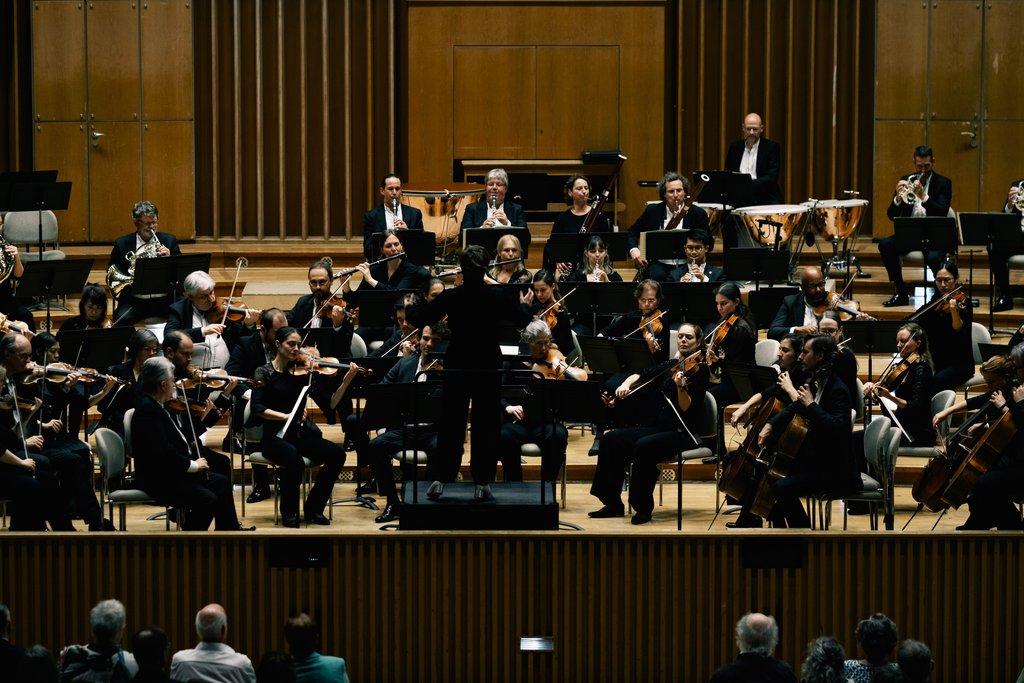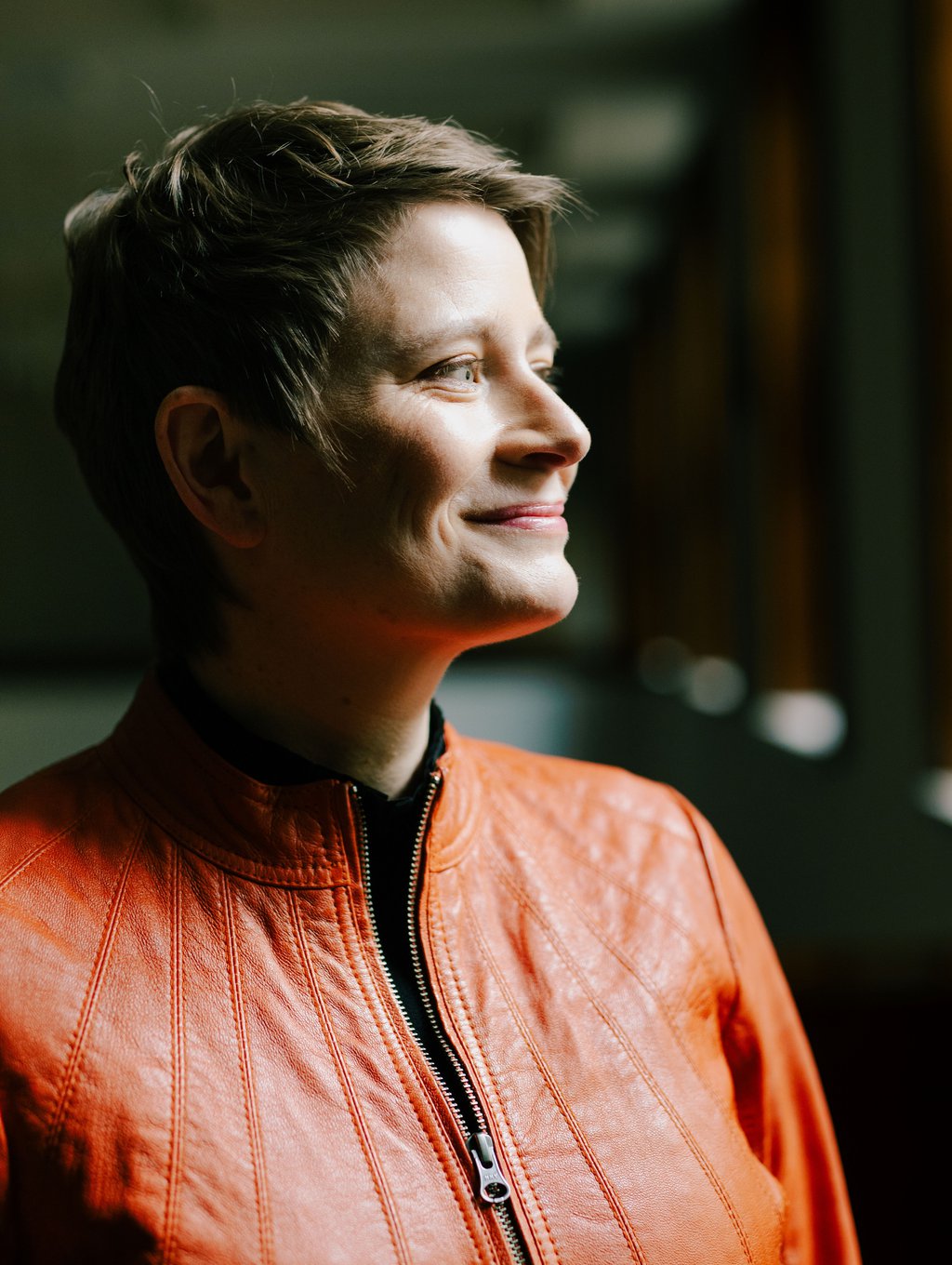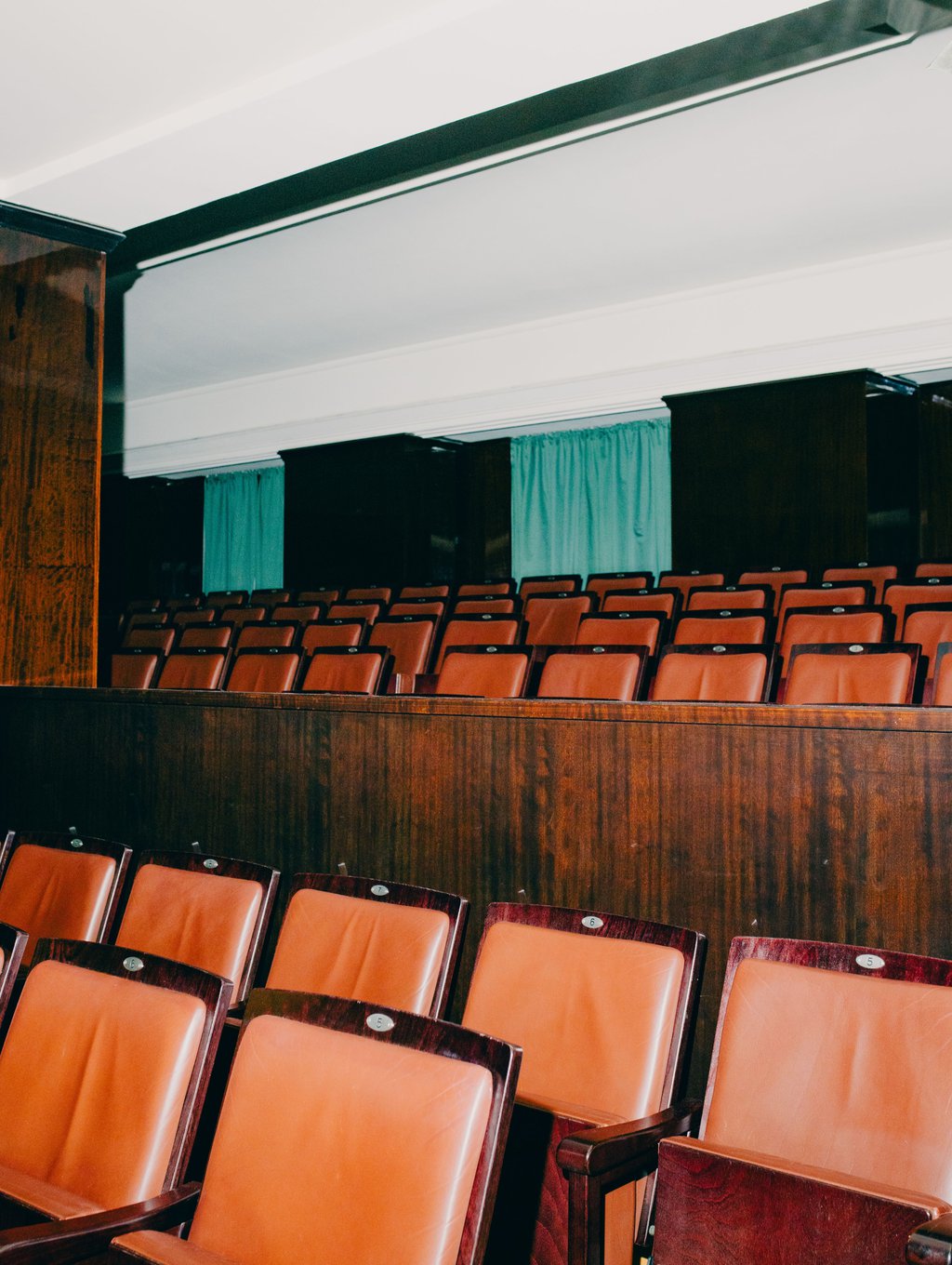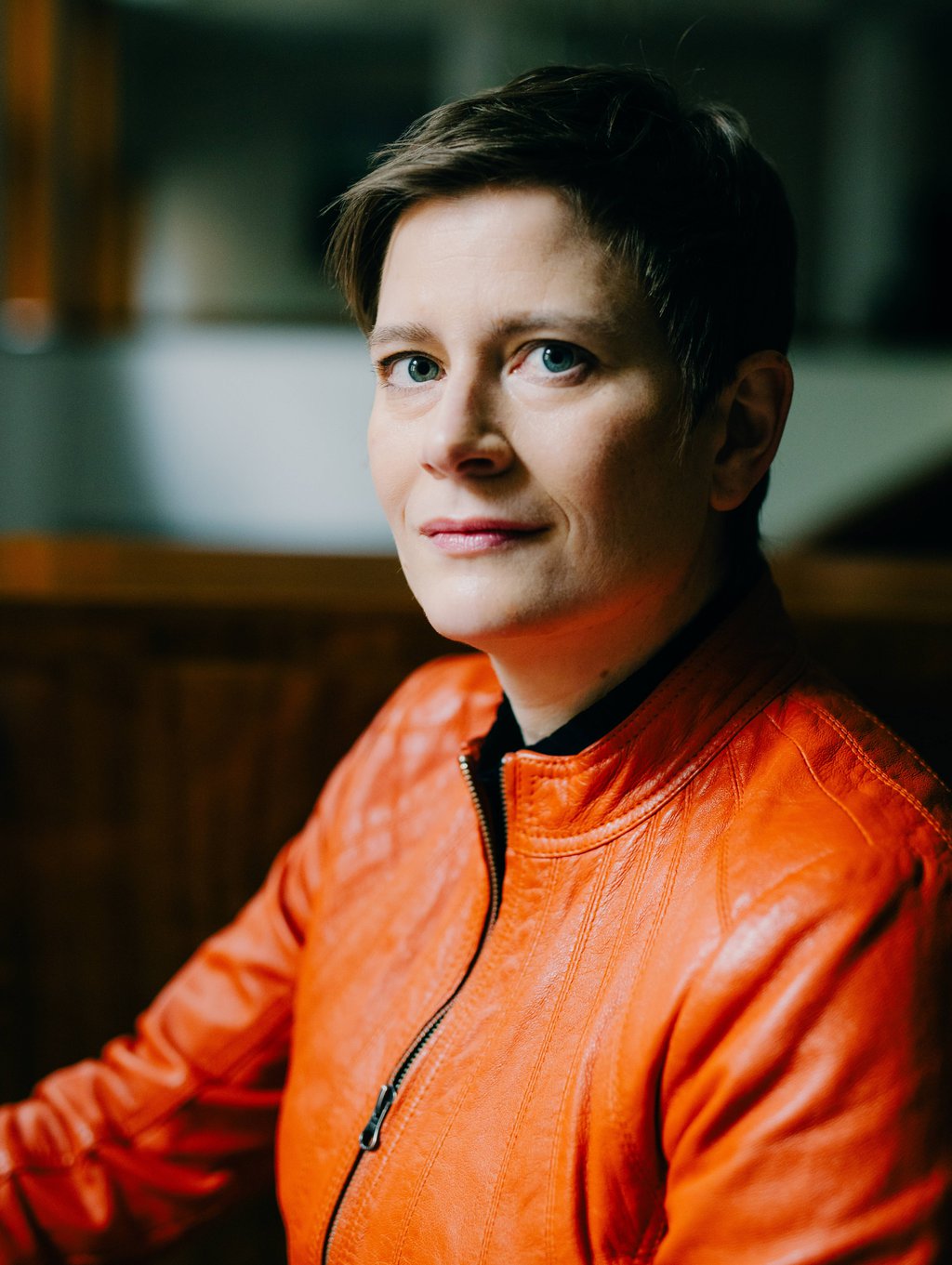Conductor Anja Bihlmaier continues her three-year residency at Beethovenfest – 2025 with the Deutsches Sinfonie-Orchester Berlin and a wild programme. Last year, she made her debut with ›her‹ Residentie Orkest Den Haag.
Anja Bihlmaier: Three-year residency at Beethovenfest
»I have the best job in the world«
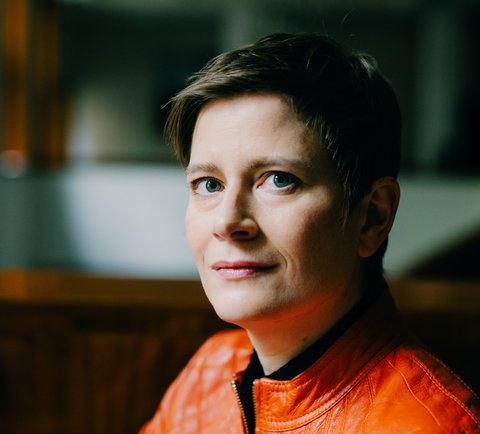
»Beethoven is extreme, radical, even disturbing. But the music is very clear in terms of form and at the same time very passionate.« When conductor Anja Bihlmaier talks about Beethoven, she emphasises the contrasts. Beethoven challenges us to think, but at the same time he stirs us inwardly. But Beethoven does not create chaos from these almost contradictory qualities. Rather, musical precision and passion are combined here in a unique way. And Bihlmaier immediately moves on to the question of how this special art can sound when played today. »I have the best job in the world,« she says. After talking to her, it becomes clear that she is probably the best candidate for this job. Because Anja Bihlmaier manages to find words for music that make her fascination tangible and understandable.
As a conductor, she stands at the interface: between thought and sound, between words and music. Conducting is the profession that brings everything together. »I’m at the centre of the energy,« says Anja Bihlmaier.
She knew early on that she felt very comfortable in this position when she first conducted the school orchestra as a teenager: »This is what I want. It’s what I do best. And that makes me incredibly happy!« She now stands in front of 8,000 people at the Proms in London and also conducts her own orchestra, the Den Haag Residentie Orkest. Being a chief conductor is very different, »like being in a relationship«, she says, because here you work on a deeper basis of trust. And can therefore take more risks, test out more. Finding your own sound? That’s not what Anja Bihlmaier is primarily interested in. She believes less in the specific sound of an orchestra under a particular conductor and more in the specific sound of individual composers, even individual works or individual movements.
Anja Bihlmaier at the festival 2025
- , Opera Bonn
Kian Soltani & Deutsches Symphonie-Orchester Berlin
OrchestraAnja Bihlmaier
Tschaikowsky, Zimmermann, Schostakowitsch
Anja Bihlmaier in the festival 2024
- , University of Bonn, Aula
Residentie Orkest & Cuarteto Casals
Residentie Orkest Den Haag, Cuarteto Casals, Anja Bihlmaier
Beethoven, Adams
